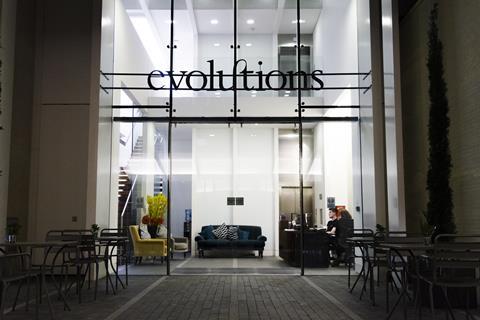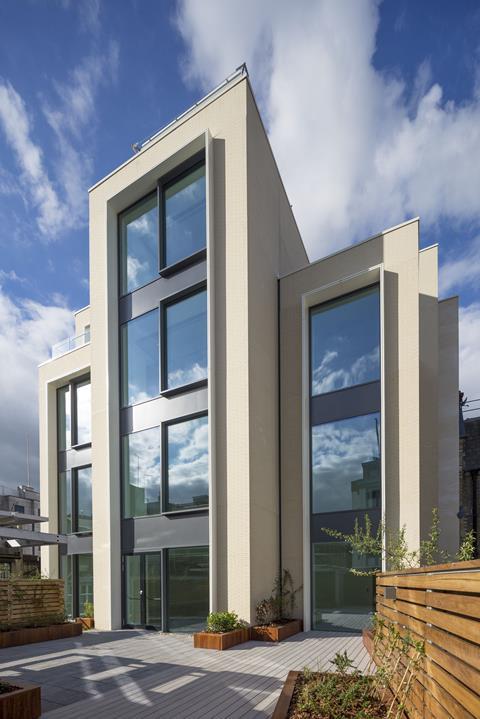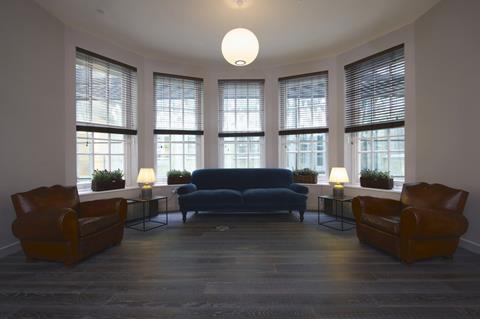Evolutions managing director Simon Kanjee on transforming the long-running Soho facility

Simon Kanjee has been at the helm of Evolutions, one of the UK’s longest-standing post-production houses, since 2004. Once through the door of the facility, he wasted no time leading a management buyout (MBO) that same year and kickstarting a period of growth through acquisitions.
Funded by venture capitalists, Evolutions acquired struggling post house Nats in 2006 – and with it the firm’s offices in Soho Square and Oxford House.
Two years later, Evolutions took over another failing post house, The Sanctuary, on Great Pulteney Street, gaining another large premises in the process.
“At that point, we had Soho Square, Berner Street and Great Pulteney Street, but had lost Oxford House in a compulsory purchase order, because it was on the proposed expansion site for Tottenham Court Road station,” said Kanjee.
”Other post companies were opening brand new shiny buildings. It was frustrating because we didn’t have that nice environment,” Simon Kanjee
“But all three were tired buildings and none had been designed by us or built in our vision. Other post companies were opening brand new shiny buildings – the world had changed and clients wanted things like breakout areas, better sofas, just a different feel. It was frustrating because we didn’t have that nice environment.”
In 2011, ending what had “turned out to be a nightmare”, Kanjee once again led an MBO, this time buying venture capitalist Albion Ventures’ 49% stake in the company.
Shortly after, the lease on Berner Street came to an end and Evolutions chose not to renew on Soho Square. “It was a lovely building, but very shabby and wasn’t fit for purpose,” said Kanjee.
Evolutions found a building on Soho’s Sheraton Street, after an extensive search for somewhere it could make its own. It turned the site into somewhere that was a world away from the aesthetic of old, with attractive furniture, a contemporary design and an attention to detail that had been lacking previously.
Kanjee said: “We wanted to follow the upmarket private members’ club feel, and we did it all ourselves. We didn’t use any external designers, architects or systems integration companies. Tim O’Brien, our head of grading/ creative director and [operations director] Owen Tyler designed it and came up with the colour palette and all the soft furnishings. It became very evident that [the new building] was a massive step change for us. It made us proper players. You could see clients’ eyes widening when they saw it.”
”It became evident that the new building was a massive step change for us. It made us proper players. You could see clients’ eyes widening when they saw it,” Simon Kanjee
Evolutions’ next move in London, in 2015, was to open a similar-size building, with a bar and outside terrace, on Berwick Street. “The aesthetic principals are the same as with Sheraton Street and my one contribution to the architectural design was to say ‘We want a Peroni tap in the bar’,” said Kanjee.
Post challenges
The company now has around 100 offline, 12 online and 10 audio suites, plus two Baselight grading rooms, across its three London sites. It also has a 40-room building with the same design and feel in Bristol, where it took over post house Big Bang in 2016. Kanjee said it now has plans for further growth in the city.
Having a newly refreshed, stylish feel to the place doesn’t necessarily make business any less challenging. “It’s still a bit hand to mouth in post,” said Kanjee. Asked why Evolutions has developed a reputation among its rivals for undercutting over the years, Kanjee said the accusation is unjust.
“It’s very unfair that our name has been associated with undercutting. We are doing everything we can to push up rates,” Simon Kanjee
“It’s very unfair that our name has been associated with undercutting. We are doing everything we can to push up rates, while certain people are going around offering rates that make no sense. Some of the deals that are being done at the moment are absurd. It’s damaging to the industry and makes me very angry. If it continues, there’s only one way it will end – somebody will pull the plug. We all need to work harder together at not allowing production companies to make fortunes at our expense.”
Kanjee is confident that Soho will remain the heartland for post, despite the climate of spiralling rents, lowering post budgets and undercutting. “I’ve worked in Soho for 25 years and from day one, everyone has been saying the post community needs to move out of Soho. People have talked about it forever and it’s never happened, and I don’t think it ever will. What needs to happen is for us to charge more to account for it being a much more expensive environment than it was 25 years ago.”































No comments yet